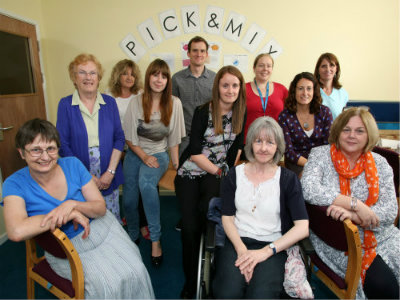
By Rob Greig
In recent years, the overwhelming majority of social workers I have spoken to have described how they cannot deliver effective outcomes to people because of constraints imposed on them in their job. Notwithstanding the inherent tendency many workers have to complain about their employers, the consistency of this message must tell us that something is wrong.
Whether working with older people needing support to avoid care home admission, with people with learning disabilities whose community services are at risk of breaking down or with young disabled people wanting support to get a life, social workers tell how the combination of bureaucratic requirements, excessive workloads and pre-occupation with risk avoidance (aka scandal) are driving creativity out.
This is not (usually) a criticism of ‘the bosses’. Tellingly, many senior managers express similar frustrations saying that they are at a loss to understand why the creative approaches they advocate are not being delivered by their staff; and/or they are genuinely surprised by the discrepancy between what they believe is happening and the experiences described by people who use services and their families.
Shropshire seems to be a notable exception to this story. Staff there wax lyrical about their work and what they can achieve. The evidence is that people who use their services are equally positive about their experiences and (of importance in these difficult times) these things have been achieved whilst significantly reducing expenditure.
So what is the difference? The starting point appears to be that Shropshire’s adult social work is predominantly delivered through a community-led voluntary organisation – People2people (P2P). This is not the usual ‘management buy-out’ model where services are outsourced to a community interest company and much practice and behaviour is transferred with it. P2P is genuinely led by a partnership between local people and staff. They have placed priority on staff practice reflecting two core principles – genuine person-centred working and a focus on community inclusion.
As a result, people who need support are getting more of what they want. Use of community resources and natural supports are the key starting point and less money is being spent. These are not just the organisation’s claims: P2P started life as a Department of Health adult social work practice pilot, and the evaluation of that initiative confirms that something different and interesting is being achieved in the county.
Shortly after transferring to P2P, the staff made some radical changes, including slashing the complexity of assessment frameworks and speeding up decision making. Stephen Chandler, Shropshire Council’s director of adult services, asked a senior social worker why they had not done this before and was told “because the council wouldn’t have let us”. The reality is that as the director he would have let them, but the culture and behaviour patterns that are an inherent part of large, statutory sector organisations meant that council processes and expectations created a belief system within its staff that stifled such creativity.
This is not an argument for privatisation. Key elements such as safeguarding continue to rest with Shropshire Council. More importantly, it is not the simple process of moving social work outside the council that is creating this change. Rather it is the concept of a truly community-led organisation, working in partnership with staff and the council that appears to have enabled a culture shift to person-centred, outcomes-focused practice – and financial savings.
Perhaps it is time to recognise that if we are serious about community inclusion and social capital being core to the personalisation agenda and the outcomes we aspire to, then maybe social work should be led from the community.
Rob Greig is the chief executive of the National Development Team for Inclusion


 Bournemouth, Christchurch and Poole
Bournemouth, Christchurch and Poole  Hampshire County Council
Hampshire County Council  Lincolnshire County Council
Lincolnshire County Council  Norfolk County Council
Norfolk County Council  Northamptonshire Children’s Trust
Northamptonshire Children’s Trust  South Gloucestershire Council
South Gloucestershire Council  Wiltshire Council
Wiltshire Council  Wokingham Borough Council
Wokingham Borough Council  Children and young people with SEND are ‘valued and prioritised’ in Wiltshire, find inspectors
Children and young people with SEND are ‘valued and prioritised’ in Wiltshire, find inspectors  How specialist refugee teams benefit young people and social workers
How specialist refugee teams benefit young people and social workers  Podcast: returning to social work after becoming a first-time parent
Podcast: returning to social work after becoming a first-time parent  Podcast: would you work for an inadequate-rated service?
Podcast: would you work for an inadequate-rated service?  Family help: one local authority’s experience of the model
Family help: one local authority’s experience of the model  Workforce Insights – showcasing a selection of the sector’s top recruiters
Workforce Insights – showcasing a selection of the sector’s top recruiters 

 Facebook
Facebook X
X LinkedIn
LinkedIn Instagram
Instagram
Comments are closed.